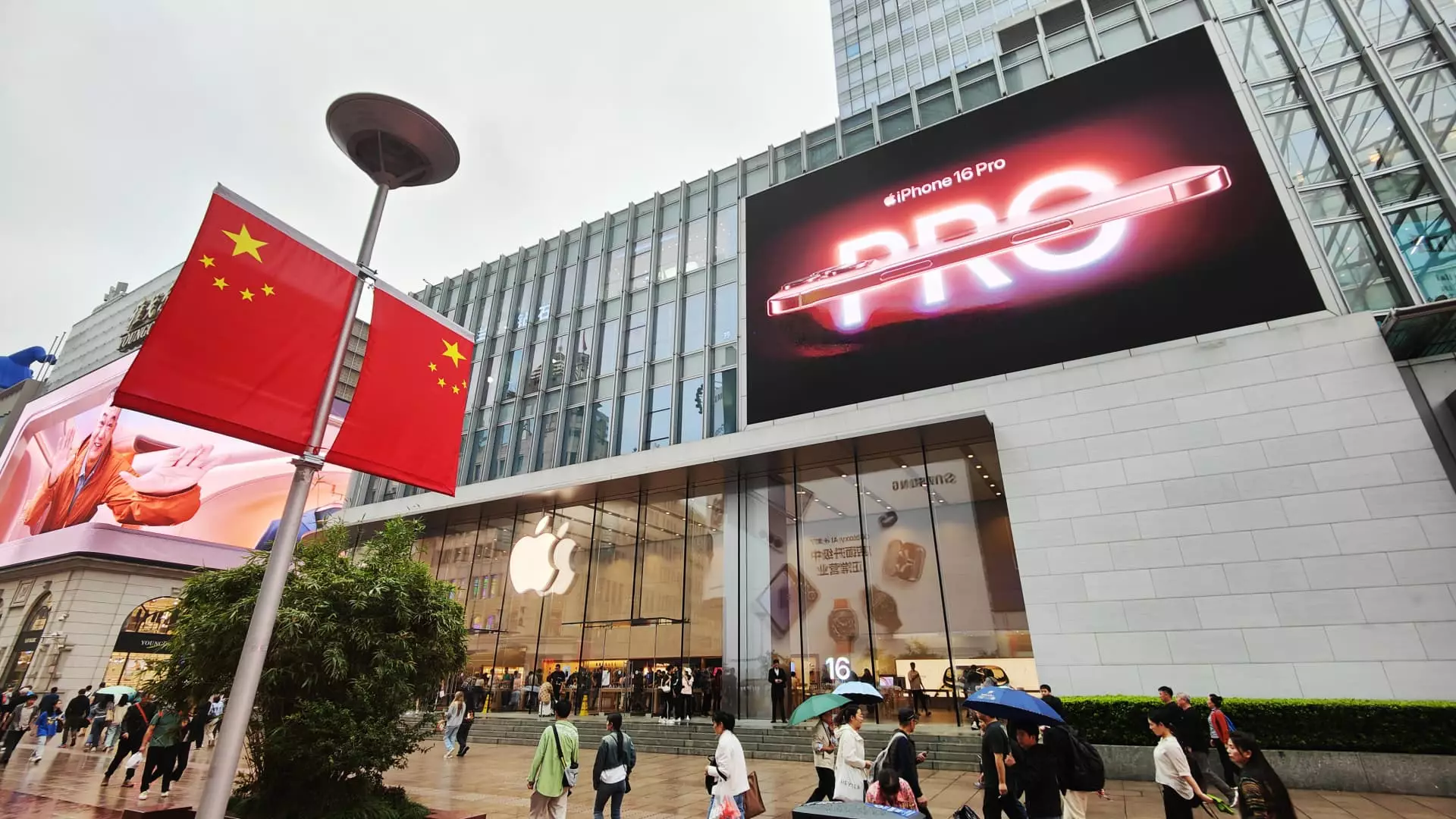The recent drop in foreign smartphone sales in China has set off alarm bells for international brands, particularly Apple, the leading foreign vendor in this highly competitive market. Official figures released have revealed that mobile phone shipments from overseas manufacturers plummeted to 3.04 million units in November, marking a staggering decline of 47.4% compared to the same period last year. Furthermore, this represents a dramatic 51% decrease from October 2023, signaling troubling trends for foreign tech companies attempting to secure their foothold in one of the largest smartphone markets in the world.
While precise figures for individual brands remain undisclosed, Apple’s prominence in the market is evident, as it holds the majority share amongst foreign brands. However, this dominance is increasingly threatened by the rapid advancements and aggressive marketing strategies employed by domestic Chinese brands. Companies like Huawei, which faced significant challenges due to U.S. sanctions, have shown surprising resilience and recovery. Their latest high-end smartphone releases have struck a chord with Chinese consumers, reviving interest in their products. This resurgence has allowed Huawei to surpass Apple in sales growth during recent quarters, according to data from research firms like IDC.
In an effort to regain its competitive edge, Apple has launched its iPhone 16 series, intending to capture consumer interest with the promise of new artificial intelligence (AI) features through its Apple Intelligence software. Yet, the reality is that this feature has yet to debut in China, hampered by the complex regulatory environment surrounding AI technologies in the nation. While Apple is grappling with these restrictions, its local rivals are successfully capitalizing on this opportunity, actively marketing their own AI capabilities that are already available to consumers. This delay in rollout could further alienate potential customers who might perceive Apple as lagging behind.
Recognizing the critical importance of the Chinese market, Apple has initiated strategies aimed at improving relationships with local companies. CEO Tim Cook’s multiple visits to China last year were a clear indication of Apple’s commitment to maintaining partnerships that could facilitate the integration of locally relevant features. As the competition intensifies, the upcoming Lunar New Year holiday serves as a key promotional opportunity for Apple. The company plans to offer discounts on the iPhone 16, hoping that strategic pricing will attract consumers during a peak shopping season.
As the landscape of the smartphone market evolves, it is imperative for foreign brands, particularly Apple, to adapt quickly to shifting consumer preferences. With local competitors proving their prowess in technology and marketing, the challenge lies not just in product innovation but also in navigating the socio-political landscape within China. The current data outlines a clearer picture: the road ahead for foreign phone brands in China is fraught with obstacles and uncertainties, and only those that can swiftly adjust their strategies may thrive in this dynamic environment.

